
Subjects Inside: Article
V Applications
FAQ,
Application Counts By
Congress, Articles,
AVC Legislative Report, CRS Reports,
Convention of State, Compact for America, COS, CFA--Which States are Which?, The Historic Record of COS, COS, CFA Laws, COS Articles, CRS Reports on COS/CFA, COS, CFA Financial Records, CFA Financials, COS Financials, COS/CFA Financial Conclusions, John
Birch Society, Con-Con, Runaway
Convention, Who Called the Convention, Congressional
Vote on a "Runaway" Convention, "Obey
the Constitution, Only Two More States", Illegal Rescissions, The Phony Burger Letter, The
Madison Letter, Fotheringham Exchange, JBS Articles, Sibley
Lawsuit, General Interest, Article V.org,
Robert Natelson, History
of Article V, Counting the Applications, The Numeric Count History, Congressional Decision of May 5, 1789,
Development of Article V, The Committee of the Whole, The Committee of Detail, August 30, September 10, Committee of Style, September 15, Official Government Documents,
History of FOAVC, Founders,
Audio/Visual,
Links,
Contact
Us, Legal
Page, 14th Amendment, The Electoral Process, Packets,
Definitions, Numeric, (Applications grouped by numeric count as required by the Constitution),
Same Subject (Applications grouped by amendment subject, not required by the Constitution for a convention call).
Page 13--A Brief History of FOAVC
Friends of the Article V Convention (FOAVC) was founded in February
2007. It was the first national
non-partisan organization dedicated to bringing about an Article V
convention call
by Congress. The reason for FOAVC founding was public record proved the
states had applied in
sufficient number to cause a convention call. Congress was
unconstitutionally ignoring the applications. The FOAVC Founders
realized there was no source which provided easy access to this public
record nor provided accurate information about an Article V Convention.
Before FOAVC was founded, all the information about a convention came
from anti-convention sites such as the John Birch Society (JBS).
Examination of this information revealed it to be factually incorrect,
incomplete, inadequate and clearly biased
in favor of the anti-convention campaign of the site.
The FOAVC Founders believed the public deserved absolute accurate and
correct information about a convention in order to base their judgment
on documented facts rather than biased information. For this reason
FOAVC was born. Unlike other Article
V Convention groups FOAVC is non-partisan. FOAVC
favors no particular amendment proposal. This policy has resulted in
broad political support and membership
from both sides of the political aisle.
The goal of FOAVC is to provide factual information about
an Article V Convention based on documented public record. Using this
public record FOAVC has corrected misstatements about an Article V
Convention by both opponent and proponent alike neither of which is as
thorough in their
research as FOAVC. These corrections has resulted in many groups
"changing their tune" about an Article V Convention or in some
instances dropping their argument altogether. Other sites offer similar
information as FOAVC but expose the reader
to biased reporting in order to advance the political
agenda of that site. At FOAVC we print the full public record
presenting the original documentation so the reader can examine it
unfiltered by any political agenda.
FOAVC was the first organization in history to gather the record of
state applications for a convention call based on records published in
the Congressional Record. Unlike previous records of state applications
which only provided a Congressional Record citation but did not provide
the full text of the Congressional Record, FOAVC went a step further
and provided links to photographic copies of the Congressional Record
pages thus enabling the reader to view the full text printed in the
Congressional Record. The
FOAVC record provides the most in-depth view of the state applications
available. It enables the reader not
only to discover which states have applied for a
convention call (and how many times the states have satisfied the two
thirds requirement of Article V) but to read the full text of the
applications and know what is actually being proposed by the state in
its application.
The scope and difficulties of this project can only be appreciated
when it is understood neither Congress or the National Archives has,
until recently, ever cataloged state applications. The government
provided no page index in the Congressional Record listing the location
of the state applications. As a
result, the applications were literally
scattered through millions of pages of government records with no
method of retrieval provided by the government. This
meant the only way to locate the state applications
was to go through millions of pages of Congressional Record
and extract the state applications from them. As most of the
Congressional Record is not online this involved going to the National
Archives and photographically copying these pages from the
Congressional Record.
This lack of proper document inventory was further complicated by the
fact only the Senate of the United States through most of the history
of Congress, actually published the full text of the application while
the House of Representatives simply published a brief reference to the
submission often without citation
(such as reference to the state's resolution title number for example).
Thus direct comparison between the Senate record and House record is
impossible. Further the publication
dates of House and Senate were often
months apart--sometimes years. (For example, the first application
received by Congress in 1789 was published in the congressional record
of that time in 1835).
Between
the dates of publication other state applications might appear meaning
there was no way to be entirely sure which House reference matched
which Senate reference. In some cases
applications were published twice in the Congressional Record from the
same chamber on different dates. In some instances only one chamber
published the record with no corresponding publication in the other
chamber. Complicating the matter
further was the fact as of November, 2016
Congress
still has no official recording method for receipt of state
applications. Thus applications were received and stored
haphazardly by Congress in the records of
various congressional committees. This made determination of their
whereabouts in the archival record even more difficult.
Indeed the entire process of archiving applications presents a problem.
The Constitution has no sunset provision for state applications for an
Article V Convention. Thus applications remain effectual until they
have achieved their constitutional purpose: the calling of a convention
by Congress based on those applications. Unlike most records in a
session of Congress which are considered archival at the end of the
sessions, applications are "current" public records as their
constitutional life extends beyond a single congressional session. (If
this were not so, Congress could easily defeat any attempt by the
states to call a convention by simply ending its session before the
necessary two thirds applications were submitted). The applications
should never have been archived by Congress in the first place.
Instead
(as stated by Congress in May, 1789 when discussing the
disposition of the first state application)
Congress should have recorded the applications in a separate record of
the congressional record of the time (carrying that record forward from
session to session) until sufficient
applications existed
"to obtain their object." The applications were instead archived with
no ongoing tabulation provided by Congress in its congressional record
and thus ignored. The result has been hundreds of state applications
accumulating in the Congressional Record causing several sets of
applications to be created each constitutionally requiring a convention
call with no corresponding action on the part of Congress.
Recently however Congress began extraction of the actual application
records submitted by the states heretofore stored in the National
Archives. FOAVC was denied access to this source when it created its
list due to congressional rules on records storage. As the
congressional list has become available FOAVC has added it to its own
list providing multiple citations and references for the reader to
examine. In many instances the new information has enabled FOAVC to at
last begin consolidation of its list in order to present the most
accurate picture possible of state applications. FOAVC has always had a
strict policy of absolute accuracy.
Nothing is stated unless referenced
with public record or if a statement is made the reference supporting
it can be readily provided if required. Thus, as FOAVC had no way to
determine which House references matched which Senate record, it choose
to publish all applications as individual records resulting in a figure
of approximately 750 citations of applications in the Congressional
Record. With new congressional information and renewed examination of
the Congressional Record FOAVC has been able to consolidate its list
and place applications from House and Senate together. This has
resulted in reduction of the number of applications presented
(approximately 550 applications) but which FOAVC believes presents a
more accurate representation of the state application record in
Congress.
The application list is but a part of the effort by FOAVC to provide
the most up-to-date and accurate information about an Article V
Convention. FOAVC continues to provide the most complete
and accurate information about an Article V Convention possible.
The Founders
FOAVC was founded by a group of six men of diverse background and
political view. They shared the common goal to bring about an Article
V Convention because they believed this nation needs a convention. The
convention offers the American people the ability to reconsider the
direction of this nation and, most importantly, to do something about
it. It allows the people to give themselves a new set of political
tools which, in turn, can be used by the people to change the staid and
frankly, corrupt, political landscape. The massive number of
applications by the states which events of 2016 have shown even
Congress can no longer ignore, demonstrate the irrefutable fact the
American people want peaceful, lawful change in their system of
government. The present
government is unwilling or unable to do this. The convention will
impose that
which the government refuses to do by use of the part of the
Constitution
intended to do just that: let the people speak.
The FOAVC Founders are:
Thomas E. Brennan
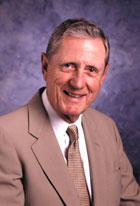 Former
Chief Justice of the Michigan State Supreme Court
Thomas E. Brennan has a distinguished career. First admitted to the
State
Bar of Michigan in 1953, Judge Brennan practiced law in the firm of
Waldron, Brennan, Brennan and Maher in Detroit for nine years. He was
elected to the Detroit Common Pleas Court in 1961, appointed to the
Wayne County Circuit Court 1963 and elected to a full term in 1964. In
1966 he was elected as a Associate Justice to the Michigan State
Supreme Court where he served as Chief Justice in 1969 and 1970. Judge
Brennan is a charter member of the Michigan State Supreme Court
Historical Society and served as Treasurer until 2001.
Former
Chief Justice of the Michigan State Supreme Court
Thomas E. Brennan has a distinguished career. First admitted to the
State
Bar of Michigan in 1953, Judge Brennan practiced law in the firm of
Waldron, Brennan, Brennan and Maher in Detroit for nine years. He was
elected to the Detroit Common Pleas Court in 1961, appointed to the
Wayne County Circuit Court 1963 and elected to a full term in 1964. In
1966 he was elected as a Associate Justice to the Michigan State
Supreme Court where he served as Chief Justice in 1969 and 1970. Judge
Brennan is a charter member of the Michigan State Supreme Court
Historical Society and served as Treasurer until 2001.
In 1973 Judge Brennan resigned from the court to devote
full time to the Thomas M. Cooley Law School (now known as Western Michigan Cooley Law School)
located in Lansing, Michigan which he founded in 1972. He was the
school's first full time Dean later serving as president beginning in
1978 until his retirement in 2002. He also served on the Board of
Directors from 1972 until 2002. Western Michigan Cooley Law School now
has
over 11,000 alumni and is the largest accredited law school in the
nation. Cooley has three campuses in Michigan (Lansing, Auburn Hills,
and Grand Rapids) and one in Tampa Bay, Florida.
During his tenure at Cooley Law School, Judge Brennan founded the
Cooley Legal Authors Society, the Student Bar Association, the
Scholastic Review Board, The Thomas M. Cooley Law Review, and was
instrumental in designing the school's year-round, three-divisional
system.
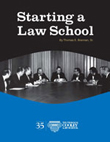 Judge
Brennan has written numerous legal articles throughout his career.
Among them are his articles on the challenges of starting the
Thomas M Cooley Law School (Click on image to read). Other
articles by Judge Brennan are: Library Dedication (2002); Commencement Remarks (2002); Lessons in Leadership (2001) and Personal Views (2001).
Thomas E. Brennan has been a leading proponent of an Article V
Convention since 1982 with the publication of his historic "Return to Philadelphia" article in the Cooley Law
Review. He frequently comments on an Article V Convention on his blog. He has
also led the effort to organize a virtual Article V Convention on the
Internet with the organization he founded, ConventionUSA.org.
Judge
Brennan has written numerous legal articles throughout his career.
Among them are his articles on the challenges of starting the
Thomas M Cooley Law School (Click on image to read). Other
articles by Judge Brennan are: Library Dedication (2002); Commencement Remarks (2002); Lessons in Leadership (2001) and Personal Views (2001).
Thomas E. Brennan has been a leading proponent of an Article V
Convention since 1982 with the publication of his historic "Return to Philadelphia" article in the Cooley Law
Review. He frequently comments on an Article V Convention on his blog. He has
also led the effort to organize a virtual Article V Convention on the
Internet with the organization he founded, ConventionUSA.org.
Tom Brennan passed on September 29, 2018. RIP.
.....
John De Herrera
John De Herrera worked with Bill Walker to get his
landmark suit to the USSC, which was discovered by Tom Brennan, which
led to the founding of FOAVC; the year of 2022 marks his
twenty-first year of legal and political activism for Article V of the
U.S. Constitution.

.....
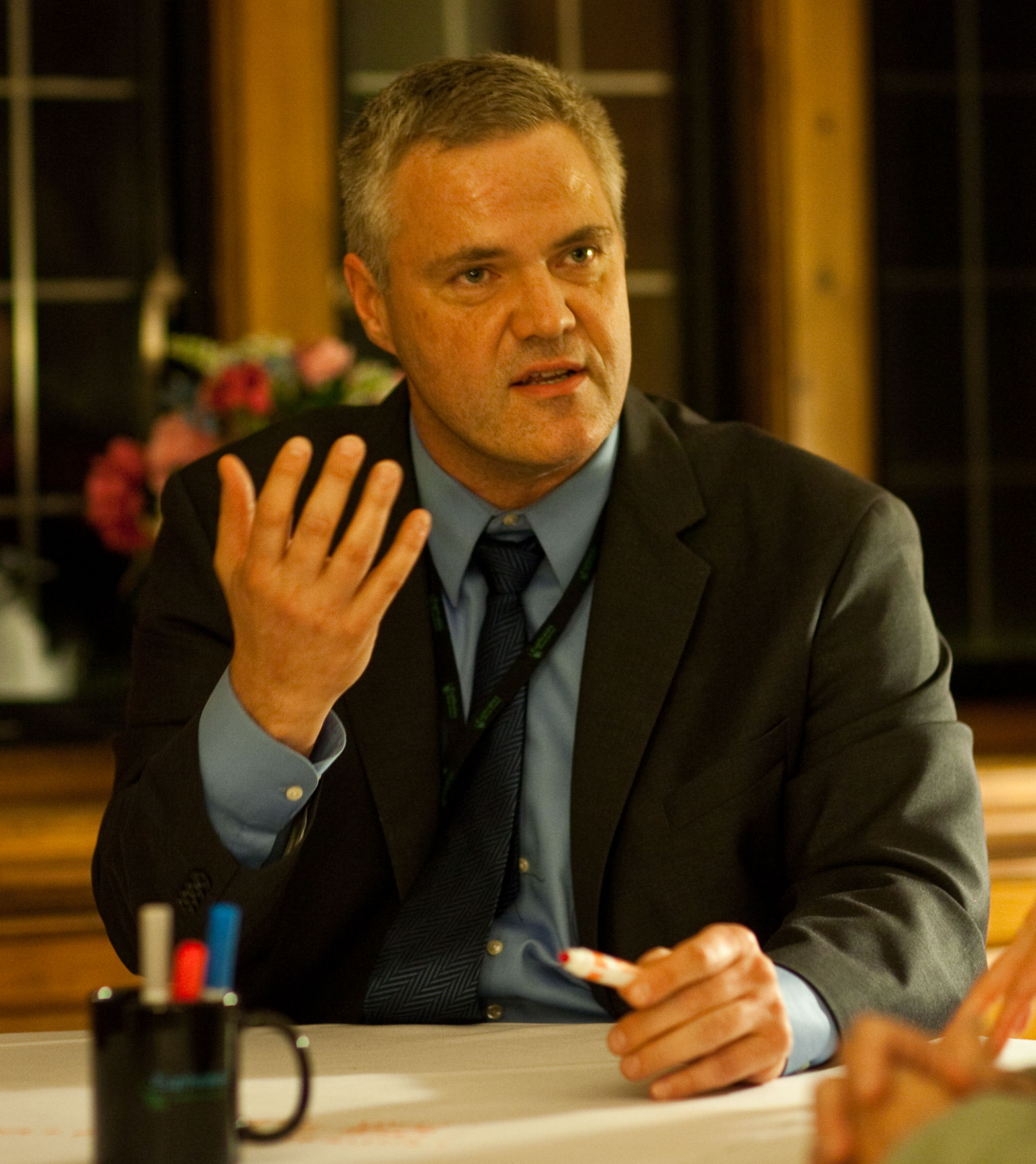 Byron De
Lear is twice a former candidate for
the United States House
of Representatives and a former candidate for the 70th Legislative
District in the
Missouri House of Representatives. He has been a
featured speaker at several international events including the 2006
World Peace Forum. In addition to his commitment as a civic activist,
Mr. De Lear is also a successful media producer in music, television
and radio.
Byron De
Lear is twice a former candidate for
the United States House
of Representatives and a former candidate for the 70th Legislative
District in the
Missouri House of Representatives. He has been a
featured speaker at several international events including the 2006
World Peace Forum. In addition to his commitment as a civic activist,
Mr. De Lear is also a successful media producer in music, television
and radio.
He is the CEO of Energy Equity Funding LLC,
2010-present and has been a national columnist on Examiner.com since
2009. He was formally Chairman of the Board, Euphrates Institute,
2010-2012, and Independent Media Producer for Twentieth
Century-Fox/Newscorp, 1985-2009. H was Co-Founder/Secretary of Global
Peace Solution 2004-2005. He worked in production and was an
independent producer at Ogdenhouse Entertainment, 1993-1999 and
Passport International Productions, 1999-2002.
Mr. De Lear was Editor-in Chief, North American Vexillological
Association (NAVA) 2013-present; Chair of the Executive Board, Missouri
Association of Accredited Energy Professionals, 2009-present;
co-founder, a member of West County Democrats, 2007-present, Board
member, Unity and Diversity Council, 2006-present; Board Member,
International Forum for Literature and Culture, 2005-present;
Writer/Publishing Member, American Society of Composers, Authors and
Publishers, 1991-present; Committee Member, American Friends Service
Committee Middle East Peace; North American Representative, MIFKAD or
People's Voice, 2004-2005; Member, Women's Democratic Forum, 200; Board
Member, Physicians for Social Responsibility Non proliferation and
Disarmament Committee, 2006-2007.
.....
Joel S. Hirschhorn
 Now a full-time writer
activist promoting reforms in American democracy, Dr. Joel S.
Hirschhorn is the author
Now a full-time writer
activist promoting reforms in American democracy, Dr. Joel S.
Hirschhorn is the author
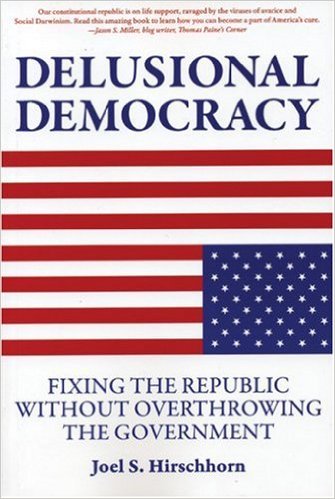 of "Delusional
Democracy - Fixing the Republic Without Overthrowing the Government."
(Click on Image to
read more about Delusional Democracy). He advocates a Second
American Revolution beginning with an Article V Convention to propose
amendments. He has written numerous articles in support of an Article V
Convention which can read on page
3 of our website. Mr. Hirschhorn was Chair of the Independent Party
of Maryland in 2008.
Dr. Hirschhorn received a B.S. in
Metallurgical Engineering, Polytechnic Institute of Brooklyn in 1961,
an M.S in Metallurgical Engineering
from Polytechnic Institute of Brooklyn in 1962 and a PhD
in Materials Engineering from Rensselaer Polytechnic Institute in 1965.
He was a full professor of Metallurgical Engineering at the University
of Wisconsin, Madison from 1965 to 1978 and provided management
consulting to many small and large domestic and foreign companies. Dr.
Hirschhorn has been a consultant to industrial and chemical companies,
DOE laboratories, state governments and public interest organizations.
He has published more than 150 papers, articles, guest editorials and
chapters in books on environmental science and technology. He worked at
Hirschhorn and Associates, an environmental consulting firm, beginning
in 1990.
From 1978 to 1990 Dr. Hirschhorn worked at the Congressional Office of
Technology Assessment from on such matters as hazardous waste
management under the Resource Conservation and Recovery Act (RCRA),
Superfund and cleanup technology, and pollution prevention and waste
reduction. Dr. Hirschhorn participated in the drafting of the Hazardous
and Solid Waste Amendments Act (HSWA) (1984) and testified 50 to 60
times before congressional committees. He also worked as a staff member
for the National Governors Association.
of "Delusional
Democracy - Fixing the Republic Without Overthrowing the Government."
(Click on Image to
read more about Delusional Democracy). He advocates a Second
American Revolution beginning with an Article V Convention to propose
amendments. He has written numerous articles in support of an Article V
Convention which can read on page
3 of our website. Mr. Hirschhorn was Chair of the Independent Party
of Maryland in 2008.
Dr. Hirschhorn received a B.S. in
Metallurgical Engineering, Polytechnic Institute of Brooklyn in 1961,
an M.S in Metallurgical Engineering
from Polytechnic Institute of Brooklyn in 1962 and a PhD
in Materials Engineering from Rensselaer Polytechnic Institute in 1965.
He was a full professor of Metallurgical Engineering at the University
of Wisconsin, Madison from 1965 to 1978 and provided management
consulting to many small and large domestic and foreign companies. Dr.
Hirschhorn has been a consultant to industrial and chemical companies,
DOE laboratories, state governments and public interest organizations.
He has published more than 150 papers, articles, guest editorials and
chapters in books on environmental science and technology. He worked at
Hirschhorn and Associates, an environmental consulting firm, beginning
in 1990.
From 1978 to 1990 Dr. Hirschhorn worked at the Congressional Office of
Technology Assessment from on such matters as hazardous waste
management under the Resource Conservation and Recovery Act (RCRA),
Superfund and cleanup technology, and pollution prevention and waste
reduction. Dr. Hirschhorn participated in the drafting of the Hazardous
and Solid Waste Amendments Act (HSWA) (1984) and testified 50 to 60
times before congressional committees. He also worked as a staff member
for the National Governors Association.
.....
Dennis Murphy
 Dennis
Murphy is a business owner and
longtime political activist living in Omaha, Nebraska. He was a state
Dennis
Murphy is a business owner and
longtime political activist living in Omaha, Nebraska. He was a state ![Event Zero: First Peoples by [Murphy, Dennis]](http://www.foavc.org/Pages/Event_Zero.jpg) director of the Nebraska Minutemen and former state
chairperson of the Nevada Reform Party. He was a member of the U.S.
Coast Guard Auxiliary.
His business interests include an ongoing project in the People's
Republic of China where he has traveled extensively gaining him a
unique, global perspective of the U.S. political system. Mr. Murphy was
publisher of Retirement Trends, a website focusing on lifestyle options
for retiring baby boomers.
His latest project is the publication of a fictional book based on his
experiences "as a kid in Brooklyn and several more recent adventure
from travels abroad." The book is entitled, "Event Zero--First
Peoples." It tells the story of Army Ranger Mike Redding who
struggles to find meaning in his post-military life after suffering a
career-ending injury while serving in Afghanistan. A chance encounter
with a young Native American girl while re-uniting with family in his
home town of NYC helps reinvigorate his spirit, but a tragic event
embarks them both on a journey that transform their lives in a way
neither expected. (To learn more about Event Zero, click on the image).
director of the Nebraska Minutemen and former state
chairperson of the Nevada Reform Party. He was a member of the U.S.
Coast Guard Auxiliary.
His business interests include an ongoing project in the People's
Republic of China where he has traveled extensively gaining him a
unique, global perspective of the U.S. political system. Mr. Murphy was
publisher of Retirement Trends, a website focusing on lifestyle options
for retiring baby boomers.
His latest project is the publication of a fictional book based on his
experiences "as a kid in Brooklyn and several more recent adventure
from travels abroad." The book is entitled, "Event Zero--First
Peoples." It tells the story of Army Ranger Mike Redding who
struggles to find meaning in his post-military life after suffering a
career-ending injury while serving in Afghanistan. A chance encounter
with a young Native American girl while re-uniting with family in his
home town of NYC helps reinvigorate his spirit, but a tragic event
embarks them both on a journey that transform their lives in a way
neither expected. (To learn more about Event Zero, click on the image).
.....
Daniel Summars
Daniel continues to support the web-site (since 2007).

.....
Bill Walker
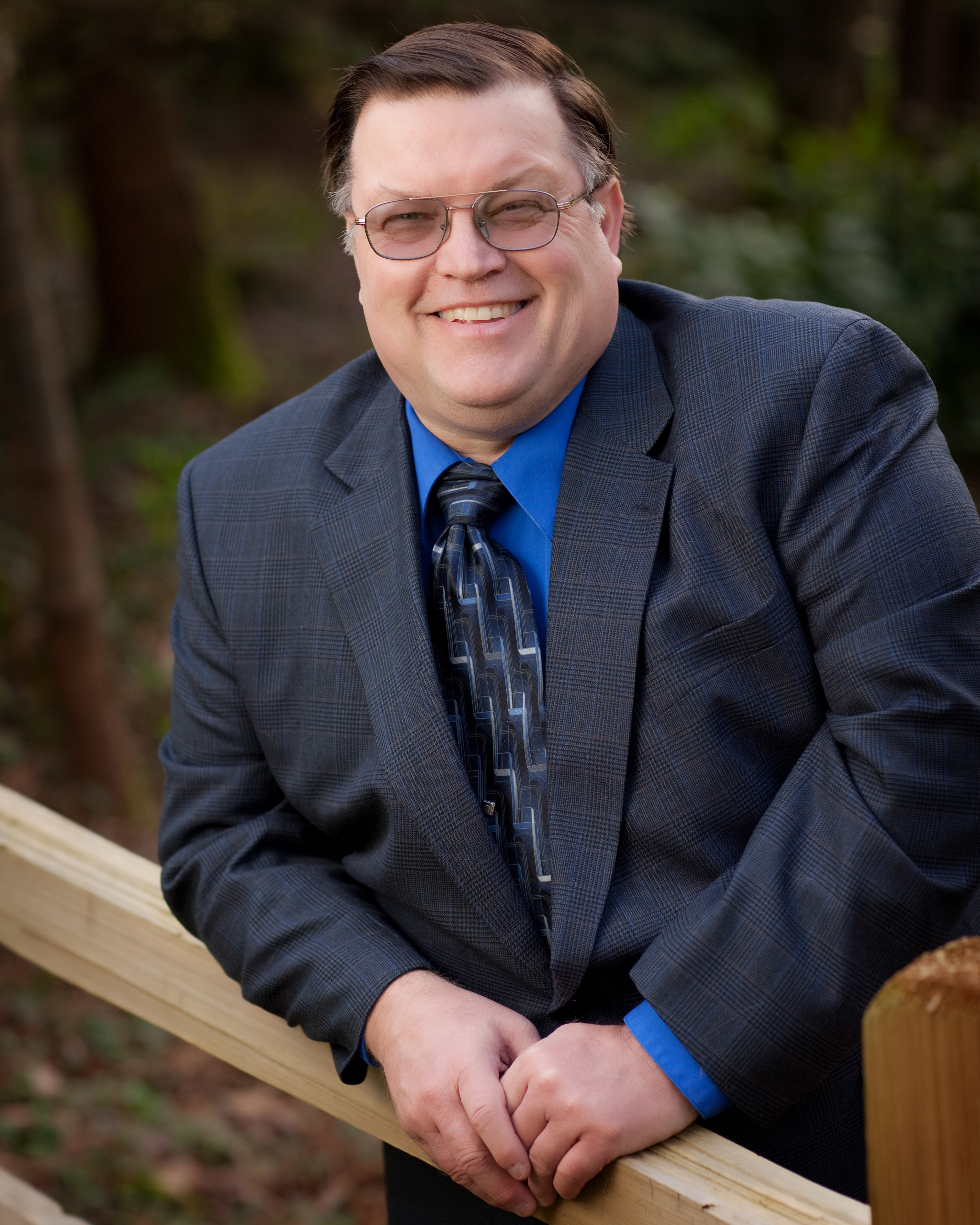 Bill
Walker is a former journalist and newspaper publisher. He graduated
from Washington State University with a BA in journalism. He has been
active in the Article V Convention movement for twenty five years.
In
2000 Mr. Walker filed the first federal lawsuit in United States
history (Walker v United States) specifically addressing the obligation
of Congress to call an Article V Convention. Later, in 2004, Mr. Walker
filed a second lawsuit (Walker v Members of Congress) which was
appealed to the United States Supreme Court in 2006. While the suit was
not reviewed by the Court, Mr. Walker nevertheless was able to cause
the government to concede, for the first time in history, the method
and terms of counting state applications used by Congress to cause a
convention call which is a numeric count of applying states with no
other terms or conditions. A detailed record of these suits may be
found at
http://www.FOAVC.org.
Mr. Walker was instrumental in helping to gather for the first time
in
United States history, the public record of state applications for a
convention call into a single photographic record presenting the full
text of the state applications. Previous
published lists of state applications only presented Congressional
Record citations but did not present the text of the
applications. Through Mr. Walker's efforts, an additional 200
application records never previously listed in prior publications were
uncovered in the Congressional Record and published for the first time.
Bill
Walker is a former journalist and newspaper publisher. He graduated
from Washington State University with a BA in journalism. He has been
active in the Article V Convention movement for twenty five years.
In
2000 Mr. Walker filed the first federal lawsuit in United States
history (Walker v United States) specifically addressing the obligation
of Congress to call an Article V Convention. Later, in 2004, Mr. Walker
filed a second lawsuit (Walker v Members of Congress) which was
appealed to the United States Supreme Court in 2006. While the suit was
not reviewed by the Court, Mr. Walker nevertheless was able to cause
the government to concede, for the first time in history, the method
and terms of counting state applications used by Congress to cause a
convention call which is a numeric count of applying states with no
other terms or conditions. A detailed record of these suits may be
found at
http://www.FOAVC.org.
Mr. Walker was instrumental in helping to gather for the first time
in
United States history, the public record of state applications for a
convention call into a single photographic record presenting the full
text of the state applications. Previous
published lists of state applications only presented Congressional
Record citations but did not present the text of the
applications. Through Mr. Walker's efforts, an additional 200
application records never previously listed in prior publications were
uncovered in the Congressional Record and published for the first time.
 Bill Walker has addressed symposiums on an Article V Convention at
Cooley Law School and Harvard Law School. His remarks may be viewed
here: (Cooley Law School: Part
1 , Part 2; Harvard Law School). He has published nearly a
hundred articles on an Article V Convention.
Mr. Walker recently published a fictional romance novel entitled
"Rache" which may be downloaded on Kindle by clicking on the picture to the right.
Sadly, Bill Walker passed at the end of March, 2020. Bill will be missed.
Bill Walker has addressed symposiums on an Article V Convention at
Cooley Law School and Harvard Law School. His remarks may be viewed
here: (Cooley Law School: Part
1 , Part 2; Harvard Law School). He has published nearly a
hundred articles on an Article V Convention.
Mr. Walker recently published a fictional romance novel entitled
"Rache" which may be downloaded on Kindle by clicking on the picture to the right.
Sadly, Bill Walker passed at the end of March, 2020. Bill will be missed.
Page Last Updated: 17-DECEMBER-2020
 Judge
Brennan has written numerous legal articles throughout his career.
Among them are his articles on the challenges of starting the
Thomas M Cooley Law School (Click on image to read). Other
articles by Judge Brennan are: Library Dedication (2002); Commencement Remarks (2002); Lessons in Leadership (2001) and Personal Views (2001).
Judge
Brennan has written numerous legal articles throughout his career.
Among them are his articles on the challenges of starting the
Thomas M Cooley Law School (Click on image to read). Other
articles by Judge Brennan are: Library Dedication (2002); Commencement Remarks (2002); Lessons in Leadership (2001) and Personal Views (2001). 
 Former
Chief Justice of the Michigan State Supreme Court
Thomas E. Brennan has a distinguished career. First admitted to the
State
Bar of Michigan in 1953, Judge Brennan practiced law in the firm of
Waldron, Brennan, Brennan and Maher in Detroit for nine years. He was
elected to the Detroit Common Pleas Court in 1961, appointed to the
Wayne County Circuit Court 1963 and elected to a full term in 1964. In
1966 he was elected as a Associate Justice to the Michigan State
Supreme Court where he served as Chief Justice in 1969 and 1970. Judge
Brennan is a charter member of the Michigan State Supreme Court
Historical Society and served as Treasurer until 2001.
Former
Chief Justice of the Michigan State Supreme Court
Thomas E. Brennan has a distinguished career. First admitted to the
State
Bar of Michigan in 1953, Judge Brennan practiced law in the firm of
Waldron, Brennan, Brennan and Maher in Detroit for nine years. He was
elected to the Detroit Common Pleas Court in 1961, appointed to the
Wayne County Circuit Court 1963 and elected to a full term in 1964. In
1966 he was elected as a Associate Justice to the Michigan State
Supreme Court where he served as Chief Justice in 1969 and 1970. Judge
Brennan is a charter member of the Michigan State Supreme Court
Historical Society and served as Treasurer until 2001.
 Byron De
Lear is twice a former candidate for
the United States House
of Representatives and a former candidate for the 70th Legislative
District in the
Missouri House of Representatives. He has been a
featured speaker at several international events including the 2006
World Peace Forum. In addition to his commitment as a civic activist,
Mr. De Lear is also a successful media producer in music, television
and radio.
Byron De
Lear is twice a former candidate for
the United States House
of Representatives and a former candidate for the 70th Legislative
District in the
Missouri House of Representatives. He has been a
featured speaker at several international events including the 2006
World Peace Forum. In addition to his commitment as a civic activist,
Mr. De Lear is also a successful media producer in music, television
and radio. Now a full-time writer
activist promoting reforms in American democracy, Dr. Joel S.
Hirschhorn is the author
Now a full-time writer
activist promoting reforms in American democracy, Dr. Joel S.
Hirschhorn is the author
 Dennis
Murphy is a business owner and
longtime political activist living in Omaha, Nebraska. He was a state
Dennis
Murphy is a business owner and
longtime political activist living in Omaha, Nebraska. He was a state ![Event Zero: First Peoples by [Murphy, Dennis]](http://www.foavc.org/Pages/Event_Zero.jpg)

 Bill
Walker is a former journalist and newspaper publisher. He graduated
from Washington State University with a BA in journalism. He has been
active in the Article V Convention movement for twenty five years.
Bill
Walker is a former journalist and newspaper publisher. He graduated
from Washington State University with a BA in journalism. He has been
active in the Article V Convention movement for twenty five years. 